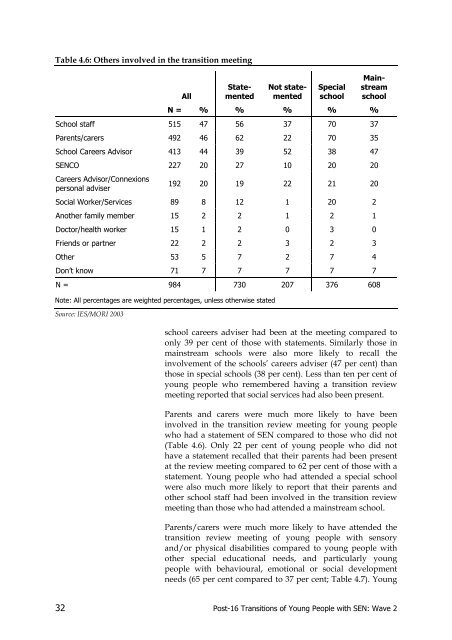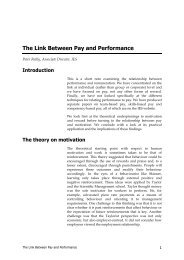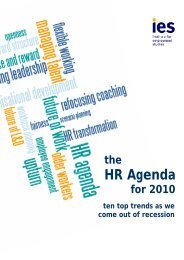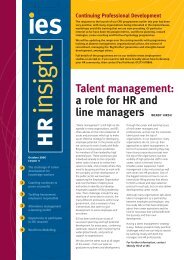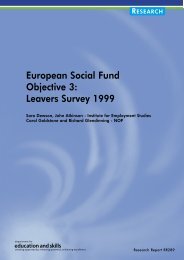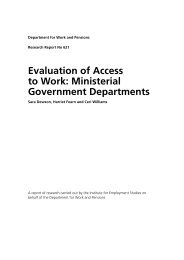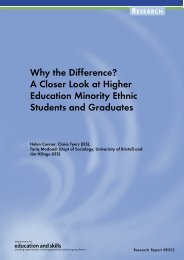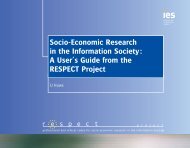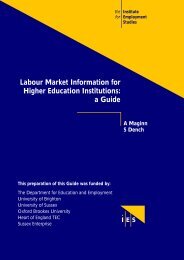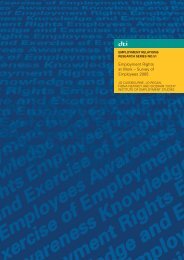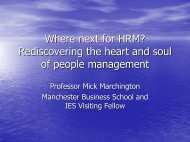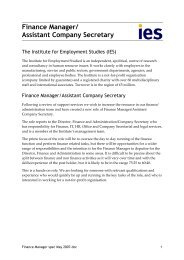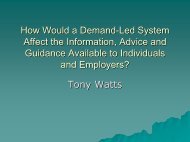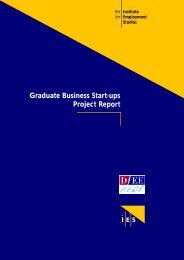Post-16 Transitions: a Longitudinal Study of Young People with ...
Post-16 Transitions: a Longitudinal Study of Young People with ...
Post-16 Transitions: a Longitudinal Study of Young People with ...
Create successful ePaper yourself
Turn your PDF publications into a flip-book with our unique Google optimized e-Paper software.
Table 4.6: Others involved in the transition meeting<br />
All<br />
Statemented<br />
Special<br />
school<br />
Not statemented<br />
Mainstream<br />
school<br />
N = % % % % %<br />
School staff 515 47 56 37 70 37<br />
Parents/carers 492 46 62 22 70 35<br />
School Careers Advisor 413 44 39 52 38 47<br />
SENCO 227 20 27 10 20 20<br />
Careers Advisor/Connexions<br />
personal adviser<br />
192 20 19 22 21 20<br />
Social Worker/Services 89 8 12 1 20 2<br />
Another family member 15 2 2 1 2 1<br />
Doctor/health worker 15 1 2 0 3 0<br />
Friends or partner 22 2 2 3 2 3<br />
Other 53 5 7 2 7 4<br />
Don’t know 71 7 7 7 7 7<br />
N = 984 730 207 376 608<br />
Note: All percentages are weighted percentages, unless otherwise stated<br />
Source: IES/MORI 2003<br />
school careers adviser had been at the meeting compared to<br />
only 39 per cent <strong>of</strong> those <strong>with</strong> statements. Similarly those in<br />
mainstream schools were also more likely to recall the<br />
involvement <strong>of</strong> the schools’ careers adviser (47 per cent) than<br />
those in special schools (38 per cent). Less than ten per cent <strong>of</strong><br />
young people who remembered having a transition review<br />
meeting reported that social services had also been present.<br />
Parents and carers were much more likely to have been<br />
involved in the transition review meeting for young people<br />
who had a statement <strong>of</strong> SEN compared to those who did not<br />
(Table 4.6). Only 22 per cent <strong>of</strong> young people who did not<br />
have a statement recalled that their parents had been present<br />
at the review meeting compared to 62 per cent <strong>of</strong> those <strong>with</strong> a<br />
statement. <strong>Young</strong> people who had attended a special school<br />
were also much more likely to report that their parents and<br />
other school staff had been involved in the transition review<br />
meeting than those who had attended a mainstream school.<br />
Parents/carers were much more likely to have attended the<br />
transition review meeting <strong>of</strong> young people <strong>with</strong> sensory<br />
and/or physical disabilities compared to young people <strong>with</strong><br />
other special educational needs, and particularly young<br />
people <strong>with</strong> behavioural, emotional or social development<br />
needs (65 per cent compared to 37 per cent; Table 4.7). <strong>Young</strong><br />
32 <strong>Post</strong>-<strong>16</strong> <strong>Transitions</strong> <strong>of</strong> <strong>Young</strong> <strong>People</strong> <strong>with</strong> SEN: Wave 2


